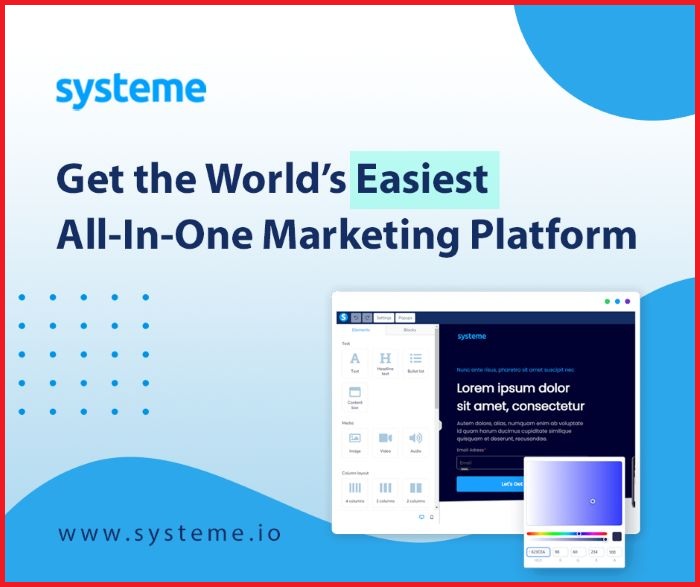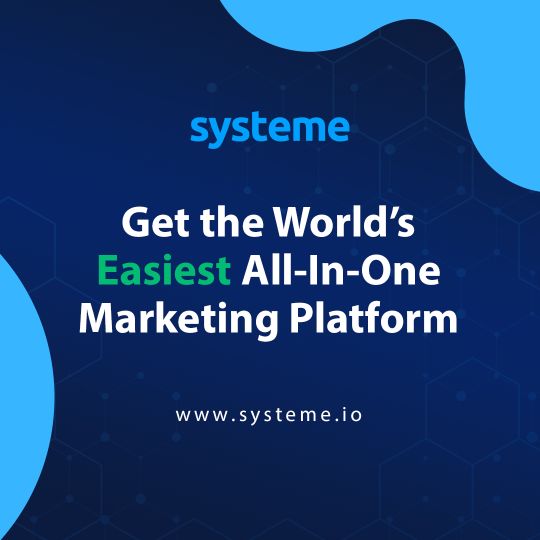If you’re looking to grow your business in the digital age, you must understand the impact of content marketing. Content marketing helps you connect with customers by building trust, increasing your visibility, and improving your brand image. This marketing strategy focuses on sharing valuable and relevant content that speaks directly to your audience’s needs and questions.

Investing in content marketing offers a chance to stand out in a crowded market. By consistently providing high-quality content, you can attract new viewers and turn them into loyal customers. It’s not just about creating content but also about building strong connections that lead to long-term success.
In a world where customers are bombarded with sales pitches, content marketing offers a refreshing change. It helps you reach potential clients in a way that is engaging and informative. The more they see your brand as a source of valuable information, the more likely they are to trust you with their business.
Key Takeaways
- Content marketing builds trust and brand visibility.
- High-quality content attracts and converts new customers.
- Long-term growth is achieved through strong customer connections.
Foundations of Content Marketing
Content marketing is vital for reaching and engaging your audience effectively. Understanding the basics helps you create high-quality content that supports your marketing strategy.
What is Content Marketing?
Content marketing involves creating and sharing valuable content to attract an audience. It’s not just about selling; it’s about building a relationship with your audience. This approach can include blog posts, videos, podcasts, and social media content.
You aim to address your audience’s needs and interests. By doing this, you build trust and loyalty, which can lead to increased sales and customer retention. The importance of content marketing lies in its ability to engage people without directly promoting your products or services. By consistently providing quality content, you position your brand as an authoritative source. This approach turns casual visitors into loyal customers over time.
Core Elements of a Content Marketing Strategy
A content marketing strategy includes several key elements. First, you need to define your target audience. Understanding who you are trying to reach allows you to tailor your content to their specific needs and interests.
Next, set clear goals for your content efforts. Whether it’s to generate leads or increase brand awareness, having clear objectives ensures you stay focused.
In addition, create a content calendar to plan and organize your publishing schedule. Consistency is crucial in maintaining audience interest and engagement.
Quality content is at the heart of your strategy, so ensure everything you create is well-researched and valuable. This not only attracts your audience but also improves your search engine rankings.
Using these components, you can develop a strong content marketing strategy that supports your broader marketing goals.
Strategic Advantages
There are several strategic benefits to content marketing that can elevate your business. These range from aligning content with the sales funnel to enhancing inbound marketing efforts, and ensuring you maximize your return on investment (ROI).
Aligning Content with the Sales Funnel
Aligning your content with the sales funnel is crucial. At different stages of the funnel, your audience needs specific information. At the top, create engaging and informative content that raises awareness about your brand. Here, blog posts and infographics can be highly effective.
In the middle of the funnel, focus on content that helps potential customers evaluate their options, such as detailed guides or product comparisons. At the bottom, aim for conversions by offering in-depth product information or customer testimonials.
Aligning your content strategy with the funnel not only builds brand loyalty, but also increases chances for conversions.
Enhancing Your Inbound Marketing
Content marketing plays a vital role in enhancing your inbound marketing strategy. It uses valuable content to attract and engage potential customers.
By offering relevant and high-quality content, you can draw in more organic traffic. This approach is more reliable and sustainable than traditional advertising methods.
Using content to answer potential customers’ questions helps establish your expertise. This, in turn, builds trust and encourages customer retention. Longer engagement through effective content can lead to increased brand loyalty.
Techniques like blogs, infographics, or podcasts serve as tools for your inbound strategy, offering potential customers a reason to visit and return to your site.
Maximizing Return on Investment
Maximizing your ROI from content marketing involves strategic planning and careful execution.
By understanding your target audience, you can create personalized content that meets their needs. This targeted approach helps in improving conversion rates while keeping costs manageable.
Long-term value is another advantage of content marketing. Evergreen content, such as how-to guides or essential industry insights, can continue to generate traffic and value over time.
This builds a sustainable inbound strategy that not only lowers cost per acquisition but also enhances overall ROI.
Effective measurement and adjustment further ensure that your efforts remain aligned with business goals.
Boosting Visibility and Traffic
Content marketing is a powerful tool for improving your online presence and increasing traffic to your site. By focusing on search engine optimization and creating evergreen content, you can make sure more people find your website and engage with your content.
Leveraging SEO for Better Online Presence
To enhance your online visibility, you must focus on SEO. SEO helps your content rank higher in search engine results, making it easier for people to find your site.
Effective SEO involves using relevant keywords, optimizing meta descriptions, and ensuring your site loads quickly.
You should also consider improving site architecture. This makes it easier for search engines to crawl your site, which boosts your visibility.
Consistent SEO practices are key to maintaining a strong online presence. Regular updates, incorporating link-building strategies, and optimizing images can significantly affect your search engine rankings.
Driving Organic Traffic Through Evergreen Content
Creating evergreen content is crucial for generating consistent organic traffic. This type of content remains relevant over time, offering long-term value to readers. Examples include how-to guides, in-depth tutorials, and industry resources.
Evergreen content attracts readers who are searching for solutions. To maximize impact, make sure your content is both informative and easy to read. Use visuals like images or infographics to break up text and enhance understanding.
Regularly updating evergreen content also helps maintain its relevance, giving you continual traffic to your site.
Strengthening Customer Connections
Building strong customer connections is essential for long-term success. Fostering relationships increases loyalty and enhances lifetime value. At the same time, using content effectively builds your brand’s credibility.
Fostering Customer Relationships and Loyalty
Creating meaningful connections through content marketing is key. Personalized communications show customers they are valued. This could include tailored recommendations or exclusive offers based on previous interactions.
Feedback is another important tool. Encouraging customers to share their thoughts not only improves your offerings but also makes them feel heard.
This ongoing dialogue can lead to increased customer lifetime value as satisfied customers often become repeat buyers and brand advocates, sharing their positive experiences with others.
Using Content to Build Credibility
High-quality content serves as a foundation for building credibility. Providing valuable and accurate information establishes trust.
For instance, by consistently answering common questions in your field, you prove your expertise, drawing more visitors to your site.
Transparency is crucial, too. When you share behind-the-scenes content or discuss your brand’s values and mission, you foster trust.
Featuring customer testimonials and success stories also highlights your strengths and builds further confidence. Engaging content that tells real-world stories can effectively draw new customers and fortify existing relationships.
Content Marketing for Brand Development
Content marketing is a powerful tool for growing your brand. It helps increase brand awareness and establish you as a thought leader in your industry. By focusing on these areas, you can effectively shape how your audience perceives your brand.
Increasing Brand Awareness with Quality Content
Creating quality content is essential for boosting brand awareness. When you offer content that is informative and engaging, you attract more attention from your audience.
This means using articles, videos, and social media posts to share valuable information that resonates with your target audience.
Consistency is key. Regularly publishing content keeps your brand at the forefront of your audience’s mind. Quality content encourages sharing, which further spreads awareness of your brand.
By providing valuable insights and solutions, you can effectively broaden your reach and make your brand more recognizable.
Establishing Thought Leadership in Your Industry
To become a thought leader, you need to demonstrate your expertise within your industry. This involves creating content that addresses industry trends, challenges, and innovations.
By sharing your insights, you position yourself as an industry expert, gaining trust and respect from your audience.
Engage with your audience through discussions and webinars to showcase your knowledge. Collaborate with other experts to reach wider audiences and enhance your credibility.
Thought leadership increases your influence and helps your brand stand out as a pioneer, making potential customers more inclined to trust and choose your offerings.
Tactical Execution of Content Marketing
Using effective methods in content marketing involves strategic planning and practical steps. To succeed, you need a smart publishing plan and precise keyword research techniques. These tools will help connect with audiences and improve web presence.
Effective Blogging and Publishing Strategy
A strong blogging strategy is essential. Start by defining your target audience and understanding their interests and needs.
Consistently publishing quality blog posts can elevate your brand. Focus on creating engaging articles that offer value and insights.
Use a content calendar to organize your publishing schedule and make sure you stay on track.
Incorporate various types of content such as infographics and case studies to keep your blog dynamic and informative.
Promote your blog posts across social media platforms to widen your reach. Engaging with your audience through comments and feedback is equally important and helps build a community around your blog.
Navigating Keyword Research and Utilization
Keyword research is vital for driving traffic to your content.
Begin by identifying low-competition keywords that can help you rank faster on search engines. Using tools like Google Keyword Planner can assist in finding relevant keywords for your industry.
Focus on long-tail keywords as they often have less competition and higher conversion rates.
Incorporate keywords naturally throughout your content to improve SEO without overstuffing. Headlines, subheadings, and meta descriptions should also feature targeted keywords.
Analyzing your content’s performance and adjusting your keyword strategy accordingly can enhance visibility and effectiveness over time.
Long-Term Benefits and Growth
Content marketing provides long-term growth opportunities by helping you establish a strong presence and fostering relationships. Over time, this can lead to increased referrals and a sustainable network far beyond what short-lived paid advertising can achieve.
Cultivating Referrals and Networks
Content marketing allows you to build connections with your audience that encourage word-of-mouth referrals.
When you consistently deliver valuable content, your audience is more likely to share it within their circles. This sharing can occur through social media platforms, emails, or personal recommendations.
The trust and engagement you gain from this process create a strong network of brand advocates who believe in your message. In comparison to traditional marketing, content marketing’s effects on referrals often have greater longevity.
Effective content strategies often incorporate storytelling, which resonates with audiences on a personal level. By addressing their needs and interests, you can turn readers into loyal followers who actively help expand your reach. For instance, publishing genuine case studies or customer success stories can enhance your credibility.
Comparing Longevity: Content Marketing vs Paid Advertising
Paid advertising offers immediate visibility, but its effects are temporary. Once the budget runs out, your visibility declines. By contrast, content marketing steadily builds authority over time.
For instance, optimizing blog posts for search engines can boost your site traffic long after publication, increasing organic search visibility. This ongoing benefit leads to sustained growth and brand awareness.
Content can be reused and repurposed, enhancing its value across multiple channels like social media, webinars, or newsletters. Unlike paid ads that disappear, high-quality content remains an asset to your brand.
Furthermore, the return on investment for content marketing often surpasses that of paid advertising. Content that educates or entertains continues to engage audiences, driving consistent traffic and leads without the need for continuous spending.
Technical Aspect of Content Marketing
Effective content marketing involves integrating technical elements to enhance visibility and engagement. Understanding SEO and analyzing metrics are crucial for ensuring your content reaches its target audience effectively.
Below, key aspects like the role of backlinks and performance metrics are explored.
Understanding the Role of Backlinks
Backlinks are essential for boosting your content’s SEO performance. They serve as endorsements from other websites, signaling to search engines that your content is valuable and trustworthy.
When your content gains backlinks from reputable sites, it improves its authority and ranking potential.
For effective link-building:
- Quality over quantity: Aim for links from high-authority domains.
- Relevance: Ensure the linked content is relevant to your audience.
- Natural integration: Backlinks should appear organically within the content.
Utilizing these strategies helps in elevating your content’s position in search results, driving more organic traffic to your site.
Analyzing Content Performance and Metrics
To truly benefit from content marketing, you need to assess how well your content is performing. Key performance indicators (KPIs) offer insight into engagement and reach.
Metrics like page views, bounce rates, and conversion rates tell you what’s working and what needs improvement.
Key metrics to monitor:
- Page Views: Indicates how often your content is accessed.
- Bounce Rate: Shows the rate at which visitors leave after viewing only one page.
- Conversion Rate: Measures the percentage of visitors who take a desired action.
By analyzing these metrics, you can refine your content strategy to better meet the needs and interests of your audience, ensuring ongoing engagement and success.
Future of Content Marketing
The future of content marketing is evolving with new trends and technologies. Personalization will play a major role as brands tailor content to individual preferences. This creates more engaging experiences for your audience.
Artificial Intelligence (AI) is also set to transform content creation. By leveraging AI, marketers can produce high-quality and relevant content efficiently.
Learn more about this trend in the Neil Patel guide.
Video Content is growing in popularity. With platforms like YouTube and TikTok, short-form videos will become essential. These formats attract more views and keep your audience engaged.
Interactive Content offers another exciting trend. Quizzes, polls, and interactive infographics encourage active participation. This involvement results in better engagement and heightened interest in your brand.
In addition, Search Generative Experience (SGE) is changing how content appears on search engine result pages. It’s important to adapt your strategies to remain visible.
For more insights, check out how content marketers can respond to these changes.
Adopting these trends will ensure your brand enjoys significant marketing benefits. Embracing change helps attract potential customers and increase brand loyalty. With these tools, your marketing efforts can become more effective and impactful.
Frequently Asked Questions
Content marketing offers significant benefits such as boosting customer engagement and improving brand reputation. It plays an essential role in digital marketing success, impacting lead generation and providing measurable outcomes.
What are the key advantages of implementing content marketing for businesses?
Content marketing can increase brand awareness and trust by providing valuable information. It helps create a loyal customer base through consistent, relevant content.
How does content marketing enhance customer engagement?
By delivering content that resonates with your audience’s interests, you can increase engagement. This connection encourages consumers to interact and share your content, creating a community around your brand.
Can content marketing significantly improve brand reputation?
Through high-quality and informative content, you can position your business as an industry leader. This approach builds a strong reputation, making customers more likely to trust your products or services.
Why is content marketing considered crucial for digital marketing success?
You cannot overlook content marketing as it supports other forms of marketing by offering valuable information. It complements paid advertising efforts, enhancing the overall strategy and creating a seamless customer journey.
How can content marketing impact lead generation and conversion rates?
Consistently publishing valuable content not only attracts more visitors to your site but also nurtures leads through the sales funnel. This process can lead to higher conversion rates and more qualified leads for your business.
In what ways does measuring content marketing effectiveness benefit a business?
Measuring the effectiveness of your content marketing efforts allows you to identify what resonates with your audience and what doesn’t. It also enables you to refine your strategy. This ensures that resources are used efficiently and contribute to business growth.





